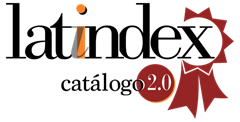Factors that integrate responsible consumption in students of Business Management Engineering at the Technological Institute of Chilpancingo.
DOI:
https://doi.org/10.62384/fesgro.v10i1.909Keywords:
Responsible Consumption , Purchasing Habits , Consumption Level , EnvironmentAbstract
This research was carried out to identify the factors that make up responsible consumption in Business Management Engineering students at the Technological Institute of Chilpancingo, as well as to know their level of consumption. The research is mainly focused on knowing your purchasing and consumption habits in general considering the Covid-19 crisis.
Today the subject of responsible consumption is one of the most important for students, because it is the responsibility of these generations to take care of the environment and natural resources that we have and responsible consumption is one of the alternatives we have and in which we can all contribute, it is a way to create a positive impact on the environment because consumerism is one of the things that affects it the most, causing air, water and soil pollution. On the other hand, information was also obtained on the level of knowledge of the students about responsible consumption and if this is considered an important issue for them.
References
Bianchi, E. C., Ferreyra, S., & Kosiak de Gesualdo, G. (2013). Consumo Responsable: Diagnóstico y Análisis Comparativo en la Argentina y Uruguay. Escritos Contables y de Administración, 4(1), 43-79. Obtenido de https://dialnet.unirioja.es/descarga/articulo/5120360.pdf
Botella, J. (abril de 2011). Papeles para el progreso. Obtenido de http://papelesparaelprogreso.com/numero55/5508.html
EcuRed. (s.f.). Obtenido de EcuRed: https://www.ecured.cu/Productor Estrella Suárez, M. V., & González Vázquez, A. (2017). Desarrollo Sustentable. Un nuevo mañana. Ciudad de México: Grupo Editorial Patria.
Fundación Vivo Sano (01 de octubre de 2020). Obtenido de https://www.vivosano.org/que-es-el-consumo-responsable/
Galán, J. S. (02 de marzo de 2016). Obtenido de https://economipedia.com/definiciones/consumidor.html
Manjón, N. (2 de marzo de 2020). Ecología Verde. Obtenido de https://www.ecologiaverde.com/7r-redisenar-reducir-reutilizar-reparar-renovar-recuperar-y-reciclar-2066.html#:~:text=El%20modelo%20de%20las%207R%20opta%20por%20una,aprovechamiento%20de%20los%20recursos%20que%20ya%20tenemos%20
Organización Mundial de la Salud (2020). Obtenido de https://www.paho.org/es/enfermedad-por-coronavirus-covid-19
Programa de las Naciones Unidas para el Desarrollo (1998). Informe sobre Desarrollo Humano. España: Mundi-Prensa.
Programa de las Naciones Unidas para el Medio Ambiente. (marzo de 2005). Manual de Ciudadanía Ambiental Global. México: PNUMA. Obtenido de https://www.administracion.usmp.edu.pe/institutoconsumo/wp-content/uploads/2013/08/Consumo-Sustentable-CI1.pdf
Real Academia Española. (2020). Obtenido de https://dle.rae.es/consumismo?m=form
Roger, K., Steven, H., & William, R. (2018). Marketing. Madrid: McGraw Hill.
Downloads
Published
How to Cite
Issue
Section
License

This work is licensed under a Creative Commons Attribution-NonCommercial-ShareAlike 4.0 International License.
La revista Foro de Estudios sobre Guerrero se encuentra bajo la licencia Creative Commons Reconocimiento-NoComercial-CompartirIgual 4.0 Internacional (CC BY-NC-SA 4.0).









